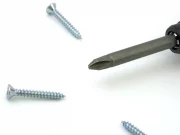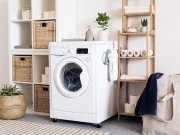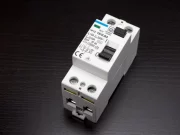A sudden loud humming noise emanating from your freezer can disrupt the tranquility of your home and leave you wondering about its source and significance. It’s a common problem that many homeowners encounter, and while it may initially be unsettling, understanding why your freezer is making such a noise is the first step towards resolving the issue. In this article, we will delve into the reasons behind your freezer’s unsettling hum, offering insights into its potential causes, troubleshooting steps, and preventive measures. Say goodbye to the unsettling noise and ensure your freezer operates smoothly again.
Why is my freezer making a loud humming noise?
Your freezer’s loud humming noise could stem from a few common issues. Firstly, it might be due to the compressor, which can generate noise as it cycles on and off. Secondly, check the condenser and evaporator fans; if they’re dirty or faulty, they can produce a humming sound. Another culprit could be ice buildup, causing vibrations and strange noises. To troubleshoot, clean the fans, defrost the freezer, and ensure proper temperature settings. If the noise persists or seems unusual, it’s best to consult a professional to rule out any significant problems.
Common Causes Of Freezer Humming Noise
Compressor Operation: The compressor is the core component of your freezer’s cooling system, responsible for pressurizing the refrigerant and maintaining the desired temperature. As it cycles on and off, it may produce a noticeable hum. While some noise level is average, an aging or malfunctioning compressor can generate a louder, more persistent hum. If the compressor is the culprit, it might be time to consult a professional for repair or replacement.
Condenser Fan: Positioned at the back or beneath the freezer, the condenser fan helps dissipate heat generated during the cooling process. If it becomes clogged with dust, debris, or pet hair, it can strain to operate efficiently, leading to a humming sound. Regularly cleaning or, if necessary, replacing the condenser fan can resolve this issue and ensure proper heat dissipation.
Evaporator Fan: Located inside the freezer, the evaporator fan is responsible for circulating cold air to maintain a consistent temperature. When this fan encounters obstructions, such as frost buildup or food items blocking its path, it may produce a humming noise as it struggles to operate. Cleaning the fan or rearranging freezer contents to ensure unobstructed airflow can alleviate this problem.
Ice Buildup: Frost or ice accumulation on the evaporator coils can lead to strange noises, including humming or hissing. This buildup insulates the coils, making the freezer work harder to maintain the desired temperature. Regularly defrosting the freezer can prevent ice-related noise issues.
Temperature Fluctuations: Rapid fluctuations in temperature within the freezer can cause expansion and contraction of various components, resulting in humming or popping sounds. To minimize this, ensure your freezer is set to a consistent temperature suitable for your needs and avoid frequent adjustments.
Vibrations: Sometimes, the freezer may vibrate against nearby objects or surfaces, generating a humming noise. This can occur if the freezer isn’t properly leveled or if it lacks proper isolation. To address this, ensure your freezer is on a stable, level surface and consider using vibration-dampening materials or pads to reduce noise from vibrations.
Troubleshooting The Problem
When your freezer emits a loud humming noise, it’s essential to approach the issue systematically to identify the root cause and take appropriate steps to resolve it. Here’s a comprehensive guide to troubleshooting the problem in detail:
Prioritize safety by unplugging the freezer from the power source or switching off the circuit breaker that supplies electricity. This precaution ensures your safety while inspecting and performing maintenance.
Examine the compressor, the heart of your freezer’s cooling system. Check if it’s running excessively or making unusual sounds. Listen for any overheating, excessive vibration, or clicking noises which could indicate a malfunctioning compressor. If you suspect an issue with the compressor, it’s best to consult a professional technician for a thorough assessment and potential repair or replacement.
Moving to the back or beneath the freezer, locate the condenser fan responsible for dissipating heat. Carefully clean the condenser fan blades, ensuring they spin freely without obstructions. Dust and debris accumulation can hinder the fan’s operation and lead to a humming noise. Regular maintenance in this area can significantly improve cooling efficiency and reduce noise.
Inside the freezer, locate the evaporator fan, which circulates cold air to maintain a consistent temperature. Check if it’s operating smoothly and inspect for any obstructions caused by frost, ice buildup, or food items. Clean the fan blades if necessary and ensure unobstructed airflow within the freezer. A clean and well-functioning evaporator fan can prevent noise issues.
If ice buildup is suspected to cause the noise, initiate a manual defrosting process. This involves unplugging the freezer, removing all its contents, and allowing it to defrost thoroughly. Once the defrosting is complete, restart the freezer and monitor for any changes in noise levels. Proper defrosting can resolve issues related to ice accumulation.
Ensure the freezer is set to an appropriate and consistent temperature. Temperature fluctuations within the freezer can lead to the expansion and contraction of various components, causing humming or popping sounds. Adjust the thermostat to maintain a stable temperature, ideally per the manufacturer’s recommendations.
To mitigate noise from vibrations, confirm that the freezer is level on a stable surface. Any wobbling or unevenness can amplify vibrations and contribute to humming noises. Consider using vibration-dampening materials or anti-vibration pads to isolate the freezer from nearby objects or surfaces. These simple measures can significantly reduce noise disturbances.
To prevent future noise issues, commit to regular freezer maintenance. This includes cleaning the condenser and evaporator fans, defrosting the freezer as needed, and inspecting for loose or worn components. Consistent upkeep not only ensures a quieter freezer but also extends its lifespan and maintains energy efficiency.
How To Prevent Future Freezer Noise?
Preventing future noise issues in your freezer is crucial for maintaining a peaceful home environment and ensuring your freezer operates efficiently. Here’s a detailed guide on how to prevent future freezer noise:
Regular Maintenance:
Commit to a routine maintenance schedule for your freezer. This includes cleaning the condenser and evaporator fans, inspecting for loose or worn components, and defrosting when necessary. Regular maintenance helps keep the freezer running smoothly and reduces the likelihood of noise-related problems.
Proper Food Storage:
Organize the contents of your freezer to ensure proper airflow. Overcrowding or haphazardly storing items can obstruct airflow and prevent the freezer from working harder, potentially leading to increased noise. Follow recommended storage guidelines to maximize efficiency.
Temperature Control:
Maintain consistent freezer temperatures. Temperature fluctuations can cause components to expand and contract, resulting in humming or popping sounds. Set the thermostat to an appropriate level and avoid frequent temperature adjustments.
Sound Insulation:
Ensure your freezer is placed on a stable, level surface. Any wobbling or unevenness can amplify vibrations and contribute to noise. Consider using vibration-dampening materials, such as rubber pads or mats, to isolate the freezer from nearby objects or surfaces.
Proper Installation:
When installing a new freezer, follow the manufacturer’s instructions carefully. Ensure that it’s level and aligned adequately with sufficient clearance around it for proper ventilation. Adequate spacing and ventilation prevent overheating and reduce the chances of noisy operation.
Seal Maintenance:
Check the seals or gaskets around the freezer door regularly. Damaged or worn seals can allow warm air to enter the freezer, leading to ice buildup and increased noise as the freezer works harder to maintain the set temperature. Replace any damaged seals promptly.
Air Circulation:
Maintain good air circulation around the freezer by avoiding the obstruction of air vents or exhaust areas. Adequate airflow prevents overheating and helps the freezer operate efficiently, reducing the potential for noise.
Quiet Models:
If noise is a significant concern for you, consider investing in a freezer model known for its quiet operation. Some freezers are designed with noise-reduction features, such as improved insulation and quieter compressors.
Bottom Line
In the quest to prevent future freezer noise and maintain a peaceful and efficient home, consistent maintenance, innovative storage practices, proper temperature control, and thoughtful installation play pivotal roles. By following these measures and staying attentive to your freezer’s condition, you can ensure that it operates quietly and reliably, allowing you to enjoy the benefits of a well-functioning appliance while avoiding the disruptions caused by unnecessary noise.
FAQ’s
Can vibrations from my freezer damage nearby objects or surfaces?
Yes, persistent vibrations from the freezer can potentially damage nearby objects or surfaces. To prevent this, ensure your freezer is placed on a stable, level surface and consider using vibration-dampening materials.
Can I fix a noisy freezer myself?
Yes, you can often address noisy freezer issues through DIY maintenance, such as cleaning fans, defrosting, or adjusting temperature settings. However, for complex problems or issues involving electrical components, it’s advisable to consult a professional technician.
How can I prevent ice buildup in my freezer?
To prevent ice buildup, regularly defrost your freezer according to the manufacturer’s recommendations. Additionally, ensure the freezer door seals properly and avoid leaving it open for extended periods.





















